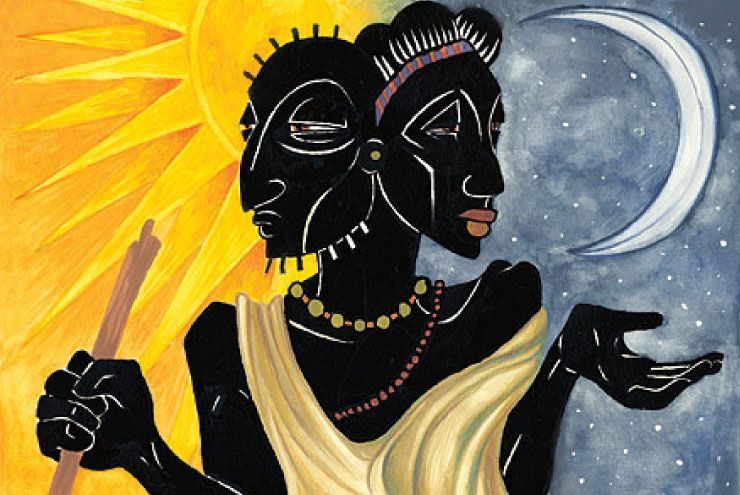By Yvan Oliva
It’s almost midnight. I’ve just walked out of the movie theater, but I haven’t quite returned to reality. There were only three of us at the screening, the last one of the film’s run at the River Oaks Theatre in Houston. This cinema, with its opulent 1940s interior, always has a profound effect on me. It’s in the way that it displaces me, more so releases me, while keeping my being intact. I can still respond to the blend of sound and moving images, the sensory experience of another world within our own, yet I am absorbed into a more capacious body. This is the magic of being in the hands of an auteur like Pedro Almodóvar, whose newest movie, Pain and Glory, places us at the unique juncture of queer reminiscence within a languishing, senescent body.
Almodóvar’s directorial perspective is unique. Hailing from an era of Spain known as la movida, a fierce decade marked by its anti-fascist countercultural movements and punk philosophies, his films continue to embody a rebelliousness in their content and form. Most noticeably, many of his films take place in a gay landscape where voice is given to the marginalized of society in the shape of queer characters with queer desires. In Pain and Glory, we find Salvador Mallo, a gay director reluctantly infirm and suddenly immersed in his past, played with balletic middle-aged restraint by Antonio Banderas. Salvador is essentially a surrogate for Almodóvar in the film, a personal investigation into the influence of memory and desire on filmmaking. And while it wouldn’t be the first time Almodóvar makes a movie about a director, Pain and Glory is easily the most autobiographical of the three. In Law of Desire, the director is young and successful but uncertain of what he wants, leaving him vulnerable to the possessive love of a young, repressed queer man, also played by Antonio Banderas. In Bad Education, we find an uninspired director suddenly confronted by an old lover, yet things are not quite as they seem and no one’s motive is certain. This type of labyrinthine narrative that centrifugally unwinds from an emotional core is part and parcel to Almodóvar’s style.
As filmmaking is an inherently subjective art form, it is incredibly satisfying to have a queer man at the reins. The movies feel fuller in regards to an emotional spectrum, at times uncomfortably so, but there’s intentionality to the very emotion being elicited. Take the monologue from Law of Desire: a young girl is dollied across a stage, lip-syncing “Ne Me Quitte Pas,” while in the background her adoptive transgender mother frantically takes an ax to the room she once shared with a lover. The beauty of the former feels jarring in comparison to the ax wielding, but somehow they are the same desperate emotion directed at a transgressor. Or perhaps a scene in Bad Education: prepubescent Ignacio is singing “Moon River” with the priest who ends up taking advantage of him, the act of which is not shown on screen but insinuated. To contrast a song as delicate as “Moon River” with the act of molestation is incredibly uncomfortable, but it’s precisely what makes it so effective.
For being a work of autofiction, a subgenre that has historically extolled the virtue of the male gaze and its capacity for objectification, Pain and Glory is instead a queer gaze that is willing to look inward on itself and the moments formative to its self-awareness. Salvador’s relationship with his mother, played by Penélope Cruz, is fraught with feelings of failure and missteps, but these vulnerabilities are later leaned into to form a cathartic arc. As a gay director who has always been preoccupied with queer sexuality, Almodóvar necessarily subverts the typical tropes of autofiction with his lush eroticization of men. The seraphic beauty of the laborer, Eduardo, with whom young Salvador is drawn to, is expounded upon in a bathing scene. Fully nude, reminiscent of classical Greek sculpture, the gaze is sure of itself and in its desire to look at this particular body, to acknowledge its beauty in contemplative pleasure. One of the most memorable, lustful kisses on screen in years occurs between Salvador and a former lover, who is openly bisexual to his wife and children. That the kiss is between two peppered, middle-aged men is testament that Almodóvar does not shy away from representations of desire through the ages, something truly refreshing on screen.
There is a moment toward the end of Pain and Glory where Salvador is at the doctor’s office. He looks up at a ceiling that has been decorated to resemble blue skies seen through windowpanes. He smiles, remembering his childhood home, a cave with whitewashed walls and a skylight that opens up to similar blue skies. Almodóvar is remembering, a word that suggests a body can be put together again, in this case, with a camera, a white screen, and some light. Magical, isn’t it?







